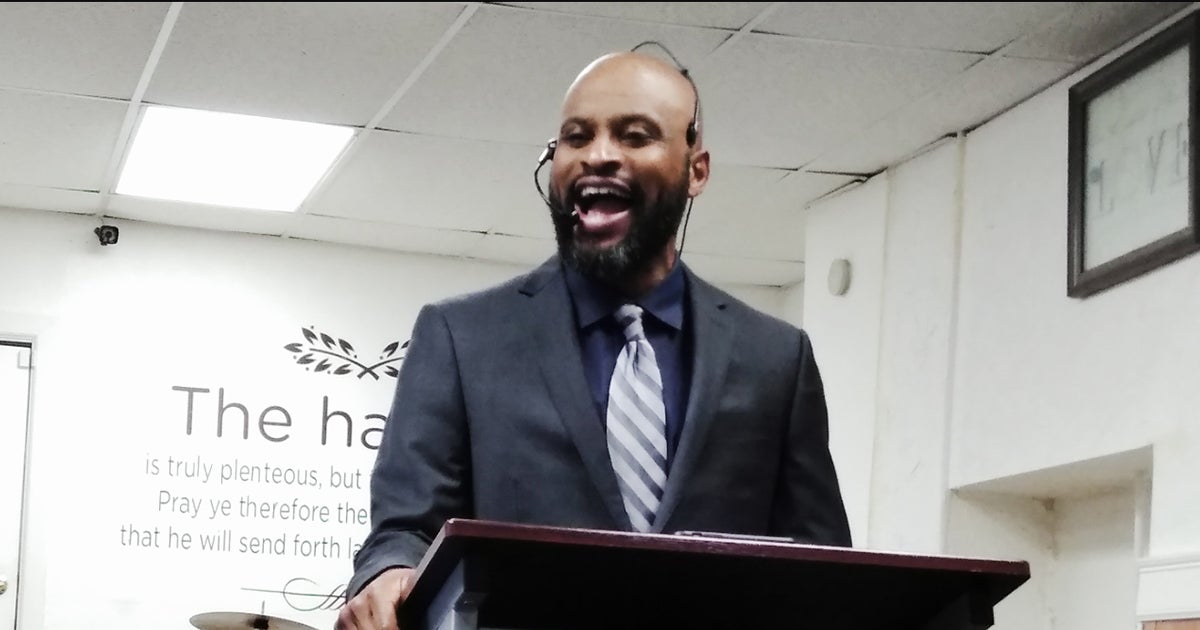
by Jorge Gomez • 5 min read
Alex Smith is a first responder, pastor and chaplain in Atlantic City, New Jersey. He’s served his community with the city’s Fire Department since 2004 and currently works as an Air Mask Technician. His job is to fit masks on his colleagues and refill air tanks.
Alex is a devout Christian and holds to a sincere belief that requires him to wear a beard, as a matter of conscience, pastoral leadership, and faithfulness to the commands of Scripture.
The Fire Department, however, prohibits beards of any length. According to the city, this policy is in place to ensure that firefighters can wear protective face masks as required by their role.
Yet Alex’s job does not require him to wear a mask. He’s not even allowed to fight fires, because his colleagues need him out at the fire engine to refill their air tanks. For this reason, Alex’s beard would not impact others at all.
Alex asked his employer for a religious accommodation. He attached letters of support from fellow pastors and Bible verses supporting his request.
But the city refused. It never even discussed Alex’s request or offered any accommodation.
So, although he’s never needed to wear a mask to perform his job, Alex still must shave to keep his job, which burdens his conscience every time. In other words, the city is forcing Alex to choose between his faith and his livelihood.
Putting Americans in that untenable position isn’t just wrong. It’s illegal.
That’s why First Liberty is stepping in to defend Alex. Along with the Harvard Religious Freedom Clinic, we filed a brief this week in federal appeals court on his behalf.
A lower district court ruled against Alex last fall. It sided with the city, saying Alex could be needed to fight a fire in the future, even though that need has not arisen and fire suppression isn’t part of his job.
That lower court ruling also ignored the landmark and unanimous U.S. Supreme Court decision in our Faithful Carrier case, Groff v. DeJoy, which changed the legal standard for religious accommodation at work.
Our brief explains what the Supreme Court held in Groff: employers are required to accommodate religious employees under federal law. The only way that employers can avoid this requirement is to show a “substantial increased cost” to the operation of their business.
In Alex’s case, we argue, the city hasn’t met the legal standard, because our client’s beard would have no impact on his coworkers or his ability to safely do his job.
The city could easily accommodate Alex without any problems. He can safely grow a beard and continue to serve and help keep his colleagues safe. But the city won’t budge. It simply refuses to grant any accommodation, which violates the law.
A Faithful Servant
Anyone who meets Alex quickly realizes that his Christian faith and desire to serve others are characteristics that define who he is.
Alex and his wife shepherd Community Harvesters Church, a vibrant local ministry, and they recently launched a second location to reach more of their community for Christ. The congregation tends an urban garden next door to their church, seeking to feed elderly neighbors who don’t have access to grocery stores, and to share the love of Christ with their community. The church property also contains a beautifully constructed “tiny house” which is available for neighbors who lack housing.
After serving for more than a decade with the Fire Department, Alex saw the dire need for chaplains who could come alongside first responders, including police officers and firefighters. He started a chaplaincy program to provide trauma counseling, a listening ear and spiritual support for those who are risking their lives to serve their community.
To this day, Alex continues to serve as the Police and Fire Department’s volunteer chaplain, in addition to his full-time role as an Air Mask Technician.
Alex Needs Your Support
More and more Americans are being singled out for their faith in the workplace. Employers continue defying the law and the Supreme Court by punishing, harassing or even firing workers over their religious beliefs.
Alex needs your support. Winning his case would be a huge sigh of relief for him and his family.
Plus, a victory for Alex could help millions of religious Americans who are facing religious discrimination at work. Every person of faith has deeply held beliefs on matters of conscience. Think about some of the core beliefs or actions that matter most in your own walk with God. Maybe for your family, it’s serving at your local church, abstaining from certain words or substances, making intentional schooling, media, or clothing choices, or sharing your faith with others.
Could your employer force you to violate those beliefs, or do the opposite of what your conscience requires? We can all agree that they shouldn’t. That’s why Alex’s case impacts every person of faith who works—including you, your children and grandchildren.
Please donate to First Liberty today.